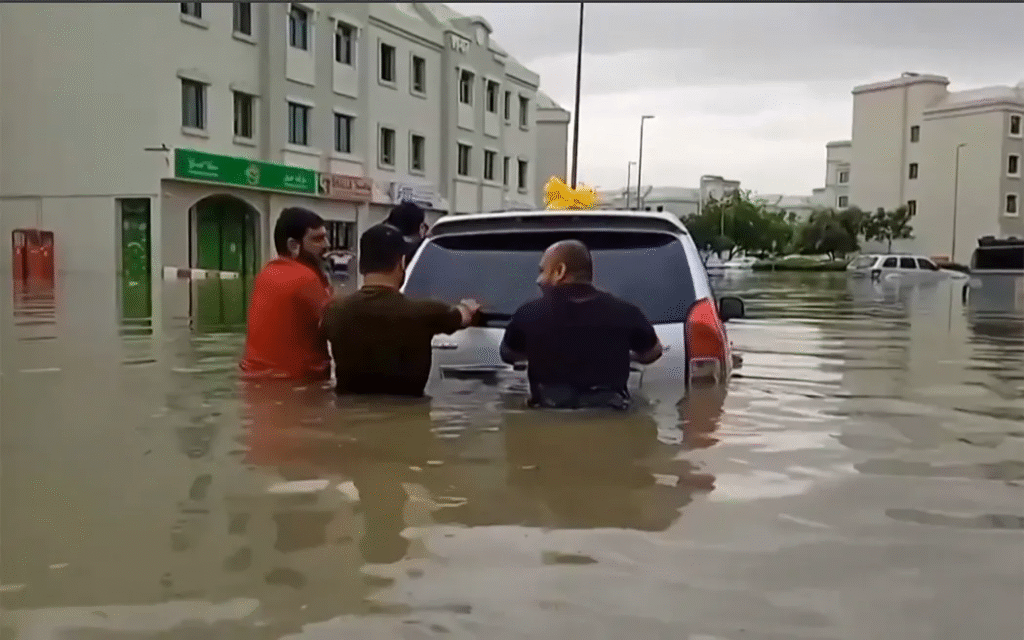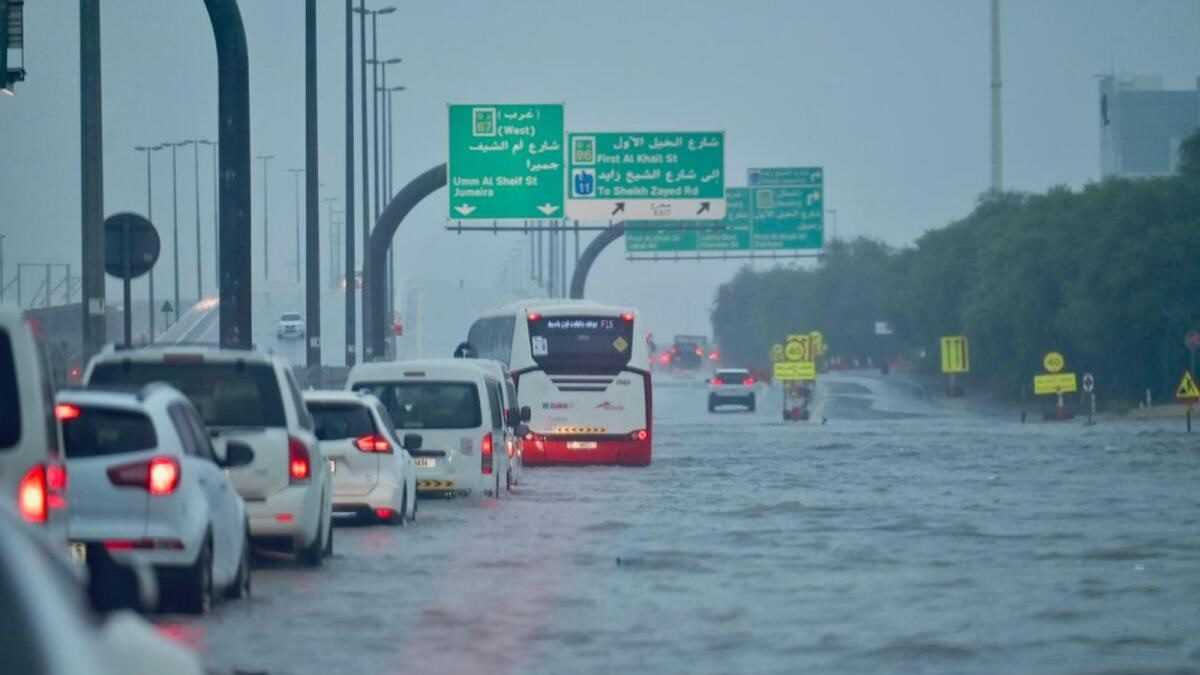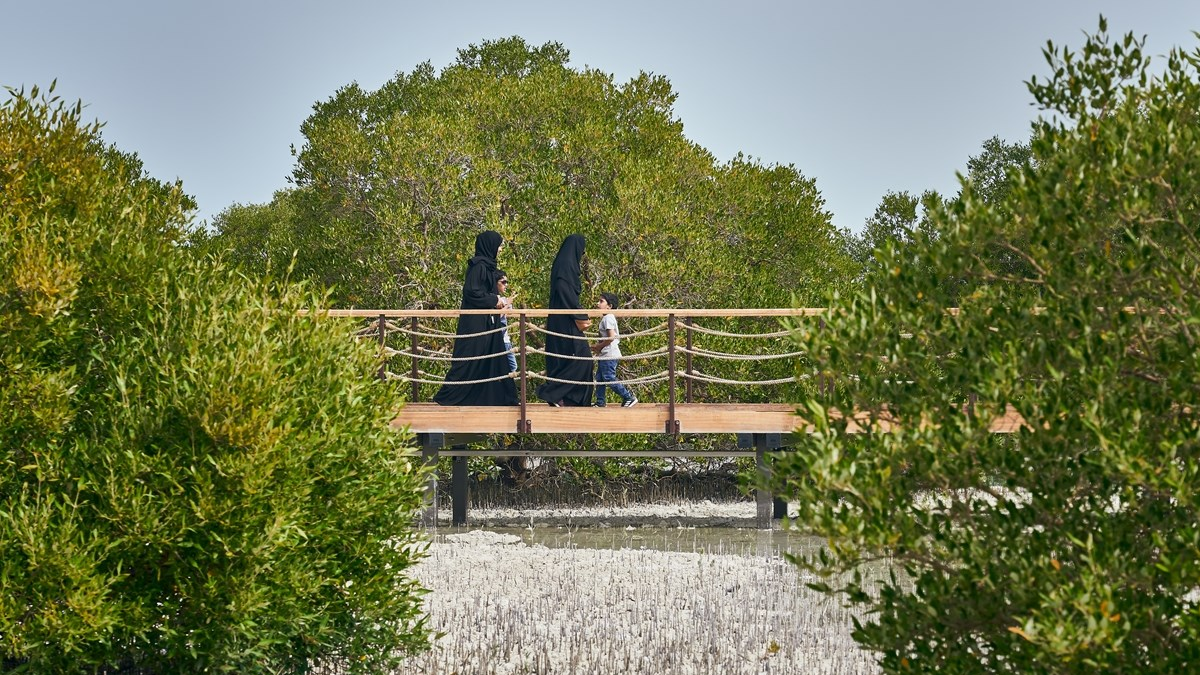Now Reading: Disaster Strikes Abu Dhabi: How Deadly Floods Changed Everything 2025
-
01
Disaster Strikes Abu Dhabi: How Deadly Floods Changed Everything 2025
Disaster Strikes Abu Dhabi: How Deadly Floods Changed Everything 2025

Table of Contents
Abu Dhabi, the shining capital of the United Arab Emirates, is facing severe flooding after days of unseasonal heavy rainfall. Major roads have turned into rivers, homes and businesses are flooded, and transport has been brought to a standstill. Experts are calling this one of the most severe flooding events in the city’s history.
Torrential Rains Shock Residents

Abu Dhabi usually enjoys a desert climate with dry, sunny days and mild winters. However, this week, the city was hit by a powerful low-pressure system that brought record-breaking rainfall. According to the National Center of Meteorology, over 100 millimeters of rain fell in less than 24 hours in some areas — an amount that normally takes several months to accumulate.
Residents were caught off guard by the intensity of the storm. “We have never seen rain like this,” said Ahmed Al Mansoori, a resident of Khalifa City. “Our entire street is under water, and cars are floating.”
Videos and photos shared on social media showed submerged roads, waterlogged parking lots, and stranded vehicles. Many people were forced to abandon their cars and walk through waist-deep water to reach safe areas.
City Infrastructure Put to the Test
Although Abu Dhabi has invested in modern drainage systems, the city’s infrastructure was unable to handle such an extreme downpour. Storm drains quickly became overwhelmed, leading to massive pooling on major roads, including Sheikh Zayed Road and Corniche Road.
Emergency services worked around the clock to pump water from flooded streets and help stranded motorists. Civil defense teams used boats in some low-lying neighborhoods to rescue people from their homes.
A spokesperson from Abu Dhabi Municipality said, “Our teams are on the ground 24/7 to clear the water and ensure public safety. We are deploying all available resources.”
However, experts warn that with climate change, such extreme weather events could become more common in the Gulf region. Urban planners may need to rethink flood protection systems to better prepare for future storms.
Public Transport in Chaos
Public transportation also took a major hit. Bus services were disrupted as streets turned into lakes. The Abu Dhabi metro project, still under construction, reported minor delays in site work due to water accumulation at construction areas.
Taxi drivers struggled to navigate flooded areas, leaving many commuters stranded. “It took me three hours to get home when it usually takes 20 minutes,” said Maryam Ali, who works in downtown Abu Dhabi.
Authorities have advised residents to avoid unnecessary travel until the situation improves. Schools were closed for at least two days, and many offices shifted to remote work to keep employees safe.
Businesses Suffer Losses
Local businesses, especially small shops and restaurants, suffered severe water damage. Inventory was ruined, and cleanup costs are expected to be high. Many business owners have no flood insurance because such disasters are rare in the UAE, adding to their financial stress.
Mohammed Khan, who owns a small electronics shop in Mussafah, said, “Everything is gone. The water reached one meter inside my shop. I don’t know how we will recover.”
Large malls, including Yas Mall, reported partial flooding in basement parking areas, but emergency crews managed to drain the water quickly to avoid further damage.
Climate Change Concerns
Climate scientists have long warned that global warming can increase the frequency and severity of extreme weather events. While heavy rainfall in Abu Dhabi is rare, researchers say it is becoming more likely due to changes in global weather patterns.
“Warmer seas can mean more evaporation, which increases the chance of intense storms,” explained Dr. Reem Al Hamad, a climate researcher at UAE University. “Cities like Abu Dhabi must adapt to these new realities.”
Recovery and Relief Efforts
As the rain eased, authorities focused on relief efforts. Water tankers were sent to flooded districts to help pump out water. Volunteers from local charities distributed food, blankets, and essential supplies to families whose homes had been affected.
Hospitals reported a rise in patients with minor injuries, mainly from slips and falls in the flooded streets. So far, no major casualties have been reported, thanks to the quick response of emergency services.
The Abu Dhabi government has promised financial support for families whose homes were seriously damaged. Insurance companies are also working with clients to process claims as quickly as possible.
Looking Ahead

With climate change likely to cause more unpredictable rainfall, urban planners and government officials say long-term changes are needed. Building new drainage channels, expanding stormwater storage systems, and updating building codes are all under discussion.
For now, the city is trying to get back to normal. Crews are clearing debris, checking power lines, and repairing damaged roads. Schools are expected to reopen soon if conditions allow, and traffic is slowly returning to normal as floodwaters recede.
But for many residents, the fear of more storms will remain. “We never thought a flood like this could happen here,” said Fatima Hassan, a mother of two from Al Reem Island. “We will think twice about how to protect our home in the future.”
Safety Tips for Residents
Authorities have issued some important safety advice for residents:
- Avoid driving through flooded roads
- Stay away from downed power lines
- Do not use elevators in flooded buildings
- Follow updates from official weather sources
- Keep emergency kits and drinking water ready
With the cleanup underway, Abu Dhabi’s resilience is once again being tested. Experts say cooperation between government, business, and citizens is crucial to recover from this historic flood and prepare for whatever comes next.
Read More:- Deyaar’s Latest Announcement Shakes Up the UAE Property Market






















